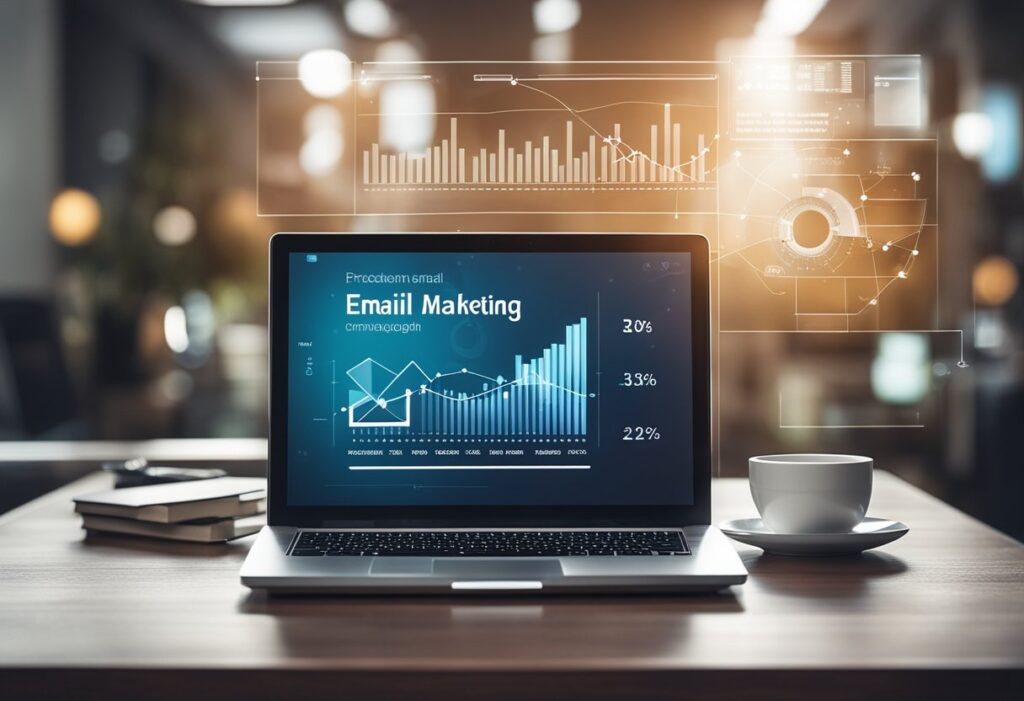Email marketing is one of the oldest digital marketing strategies in the book, but it still needs to be updated. Email remains one of the most effective ways to reach and engage potential customers. As a component of your overall inbound marketing strategy, email can be vital in driving conversions and sales.
Email marketing is a must-have tool in your arsenal if you want to improve your inbound marketing strategy. It generates open communication between you and your customers, and different types of emails can be created, which provides a more customized experience for your audience. Furthermore, email marketing is cost-effective, versatile, and highly trackable, making it an invaluable asset for any inbound strategy.
This article will explore five ways email marketing can fuel your overall inbound strategy. From attracting new customers to delighting your existing ones, we’ll show you how to use email marketing to its full potential and increase conversions and sales. So, let’s dive in and discover how email marketing can help you achieve your business goals.
Understanding Email Marketing

Email marketing is a digital marketing strategy that involves sending emails to potential and existing customers to promote your brand, products, or services. It is a cost-effective way to reach a large audience and build customer relationships.
Importance of Email Marketing
Email marketing is an essential component of your overall inbound marketing strategy. It can help you attract, convert, close, and delight your customers. Here are some reasons why email marketing is important:
- Cost-effective: Email marketing is one of the most cost-effective marketing strategies. You can reach a large audience with minimal investment.
- Personalization: Email marketing allows you to personalize your messages to your customers. You can segment your email list and send targeted messages to specific groups of customers.
- Increased engagement: Email marketing can increase engagement with your customers. You can use email to share valuable content, promotions, and updates with your customers.
- Measurable results: Email marketing provides measurable results. You can track open rates, click-through rates, and conversion rates to measure the effectiveness of your campaigns.
Components of Email Marketing
Email marketing involves several components that work together to create effective campaigns. Here are some of the key components:
- Email list: Your email list is the foundation of your email marketing campaigns. You must build a quality email list of subscribers interested in your brand, products, or services.
- Email design: Your email design should be visually appealing and easy to read. Use a clean layout, high-quality images, and clear calls to action to encourage engagement.
- Subject line: Your subject line is the first thing your subscribers see. It should be attention-grabbing and relevant to the content of your email.
- Content: Your email content should be valuable, informative, and engaging. Use a conversational tone and provide useful information your subscribers will find helpful.
- Call-to-action: Your call-to-action should be clear and prominent. Use action-oriented language and make it easy for subscribers to take the desired action.
By understanding the importance of email marketing and the key components involved, you can create effective email campaigns that drive engagement and conversions.
Inbound Strategy and Its Role

Definition of Inbound Strategy
Inbound marketing is a strategy that aims to attract potential customers to your business by creating valuable content and experiences tailored to their needs. It involves providing useful information and engaging experiences to potential customers rather than interrupting them with commercials or cold calls. This approach builds trust, credibility, and relationships with your target audience.
The inbound strategy involves several tactics, including search engine optimization (SEO), content marketing, social media marketing, and email marketing. Email marketing is a crucial component of inbound strategy as it allows you to communicate with your audience in a personalized and targeted way.
Benefits of Inbound Strategy
The inbound strategy offers several benefits to businesses, including:
- Cost-effective: Inbound marketing is often more cost-effective than traditional marketing methods such as print or TV ads.
- Builds trust and credibility: By providing valuable content and experiences to your audience, you can build trust and credibility with them.
- Generates leads: Inbound marketing tactics such as content marketing and email marketing can help generate leads for your business.
- Improves customer engagement: Inbound marketing allows you to engage with your customers in a more personalized and targeted way, which can lead to better customer relationships.
Overall, inbound marketing is a powerful strategy for businesses looking to attract and engage potential customers meaningfully. By providing valuable content and experiences to your audience, you can build trust, credibility, and relationships with them, ultimately leading to increased sales and revenue for your business.
The Connection Between Email Marketing and Inbound Strategy
Email marketing can be a powerful tool to fuel your overall inbound strategy. By using email marketing effectively, you can attract, engage, and delight your target audience. This section will explore how email marketing can be used for inbound strategy and how it can enhance your overall inbound strategy.
Email Marketing as a Tool for Inbound Strategy
Email marketing can be used as a tool for inbound strategy in several ways. Firstly, it can help you attract potential customers to your business. You can create targeted and personalized emails that attract potential customers to your business by building an email list of interested subscribers. Invesp says emails with the recipient’s name on the subject line have a 28.30% open rate. A business can witness a 50% increase in open rates of emails with personalized subject lines. By using personalization, you can create a connection with your subscribers and make them feel valued.
Secondly, email marketing can help you engage with your audience. You can engage your subscribers and keep them interested in your business by providing valuable email content. Good content increases a reader’s awareness of a problem, engages with a solution to that problem, and creates an overall excellent customer experience. You can also use email marketing to promote other inbound marketing initiatives, such as blog posts, social media, and webinars.
Enhancing Inbound Strategy Through Email Marketing
Email marketing can also enhance your overall inbound strategy. You can create a cohesive and effective strategy by using email marketing in conjunction with other inbound marketing initiatives. For example, you can use email marketing to promote your blog posts and drive traffic to your website. According to Marketing Agency, when you send emails to your subscribers, you put your brand directly in front of your target audience. This can increase the visibility and awareness of your brand.
Email marketing can enhance your overall inbound strategy by increasing your conversion rates. By creating targeted and personalized emails, you can increase the likelihood that your subscribers will take the desired action, whether purchasing, filling out a form, or downloading a resource. According to Marketing Dive, including the word “video” in the email subject line boosts the open rate by 19% and the click-through rate by 65%.
Email marketing can be a powerful tool to fuel your overall inbound strategy. Email marketing can attract, engage, and delight your target audience and enhance your overall inbound strategy.

Email marketing is pivotal in driving success within an overall inbound marketing strategy. By harnessing the power of personalized, targeted communication, businesses can effectively engage their audience, nurture leads, and ultimately convert them into loyal customers. The ability to deliver relevant content directly to a subscriber’s inbox fosters a sense of trust and credibility, solidifying brand-consumer relationships.
Moreover, email marketing provides invaluable insights through analytics, allowing businesses to refine their strategies and adapt to changing customer preferences. Automation and segmentation capabilities enable efficiency in reaching the right audience with the right message at the right time. This not only saves time and resources but also maximizes the impact of each communication.
Furthermore, email marketing serves as a cornerstone for lead generation, providing a direct channel for capturing potential customers and guiding them through the sales funnel. Integrating seamlessly with other inbound tactics, such as content marketing, social media, and SEO, creates a synergistic effect that amplifies overall marketing efforts.

1 Comment